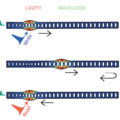Archive
04 August 2022
TU Delft researchers create flow-driven rotors at the nanoscale
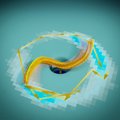
Onderzoekers van de TU Delft hebben de kleinste door stroming gedreven motoren ter wereld ontwikkeld. Geïnspireerd door de iconische Nederlandse windmolens en door biologische motoreiwitten hebben ze een zichzelf configurerende, stromingsgedreven turbine uit DNA gemaakt, die energie van een elektrische of zoutgradiënt omzet in bruikbaar mechanisch vermogen. De resultaten bieden perspectief voor de ontwikkeling van actieve robotica op nanoschaal. Het artikel is vandaag gepubliceerd in Nature Physics.
21 July 2022
NextSkins: EIC Pathfinder grant for collaborative living materials research
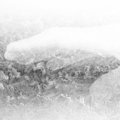
A team of researchers from TU Delft, Imperial College London, and Aalto University have received a EIC Pathfinder Challenge grant of 4 million euros for their NextSkins research project on Engineered Living Materials.
14 July 2022
ERC Proof of Concept grant for Valeria Garbin
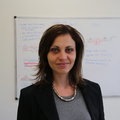
Valeria Garbin, Associate Professor at the department of Chemical Engineering, has received a Proof of Concept grant from the European Research Council (ERC) last May, to develop her acoustic-bubble microrheology (ABuMic) method into a commercial instrument. This method enables researchers to probe the properties of liquid formulations, such as shampoo, mayonnaise, inks and paints, in flow conditions that are inaccessible to normal measuring devices but typical of many manufacturing processes. The ERC awarded the Proof of Concept funding to Garbin along with 54 other principal investigators across Europe.
08 July 2022
Evolutionary model predicts how cells control the partitioning of their molecules
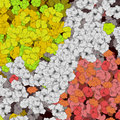
Researchers from the Max Planck Institute for Dynamics and Self-Organisation in Göttingen, Germany, and the TU Delft in the Netherlands have developed a new method to study how mixtures, consisting of many different molecules, interact to reliable form different droplets, as happens continuously in the living cell. This is the first time that scientists designed a model of many interacting molecules that can predict how particular droplets form. They published their findings in PNAS this week.
01 July 2022
Vidi grants for eight leading TU Delft researchers

28 June 2022
Baker’s yeast with human muscle genes
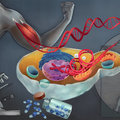
Biotechnologist Pascale Daran-Lapujade and her group at Delft University of Technology managed to build human muscle genes in the DNA of baker’s yeast. This is the first time researchers have successfully placed such a vital human feature into a yeast cell.
28 June 2022
7.4 million euros for research into products from wastewater
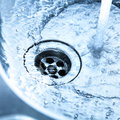
Showering, cleaning, flushing toilets, and industrial production are all processes that use a great deal of water. But what happens to the waste in the water, to everything that is flushed away and disappears into the sewer system together with the water?
08 June 2022
Energy transition at the heart of TU Delft's education programme
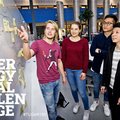
On Thursday 9 June, the TU Delft campus will be buzzing like never before. On that day, students will be presenting their ideas on how to accelerate the energy transition. Over the past six months, more than 15,000 TU Delft students have followed a course on energy transition. This has resulted in a large number of ideas and prototypes that can be seen on 9 June during the Energy Challenge Event, which is part of TU Delft's anniversary year.
02 June 2022
Jan-Maarten Geertman Alumnus of the Year 2022
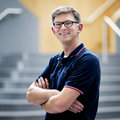
31 May 2022
A toolbox for quantum acoustics experiments
